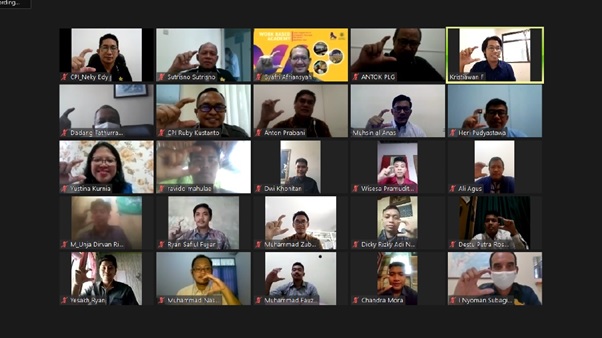
The Work Based Academy, a work and study program initiated by the Faculty of Animal Science (Fapet) UGM and PT Charoen Pokphand Indonesia, Tbk is expected to be a breakthrough in producing skilled and excellent human resources in livestock. This program will be held again in November 2020—April 2021.
This was stated by the Dean of Fapet UGM, Prof. Dr. Ir Ali Agus, DAA., DEA., IPU., ASEAN Eng. as the originator of the WBA program when contacted on Monday (1/2).
“Based on the projections of the International Labor Organization (ILO) and BAPPENAS in 2020, Indonesia still lacks experts in various industrial sectors. Only 10.7% or 13.4 million people included into the expert category out of 126.4 million workers. In fact, Indonesia is the largest labor provider in ASEAN,” said Ali.
In addition, Ali added, 10 out of 15 Indonesians included into the productive category. Therefore, WBA is expected to be a program that can produce skilled and superior human resources in livestock.
General Manager of Human Capital PT Charoen Pokphand Indonesia Tbk., Ir. M. Syafri Afriansyah, M.BA. said that finding human resources in the livestock sector is very important because it will be related to increasing efficiency in the broiler farming business, so that the Indonesian poultry industry is able to compete in the global arena.
“Therefore, collaboration between industry and university is important, not only improving the skills of college graduates, but can be a means of sharing knowledge and technology between the two parties,” said Syafri recently.
Work Based Academy (WBA) is an internship program for 6 months which is held in collaboration between the Faculty of Animal Science UGM and PT Charoen Pokphand Indonesia Tbk. This program is a breakthrough in building skilled human resources in the poultry industry to manage closed house broilers.
Zubair, an alumnus of the Faculty of Animal Science, University of Mataram, had the opportunity to become a participant in WBA batch 2. Zubair said that during his 1 month internship he learned a lot of new things, one of which was how to maintain good husks and how to properly handle chicken carcasses. Together with his seniors, he also carried out presentations and discussions.
“My daily routine at the farm is to control the cage as a whole, both checking the temperature, measuring ammonia levels, and weighing the chickens for daily recording. They also learn about how to coordinate well at work and also learn about administration,” said Adi Nugroho, an alumni of the Faculty of Animal Science UGM and also had the opportunity to be a participant of WBA batch 2.
Prior to the internship, participants had the opportunity to take part in virtual training. This activity brought many speakers to present material with different themes. The purpose of the virtual training session is to provide theoretical provisions to WBA batch 2 participants.
The virtual training materials for WBA batch 2 include materials on introduction to closed houses, biosecurity, partnerships and broiler chicken business processes; introduction and technical of closed house system, broiler chicken nutrition and feed management; and Safety, Health, and Environment (SHE). (Nadia)
